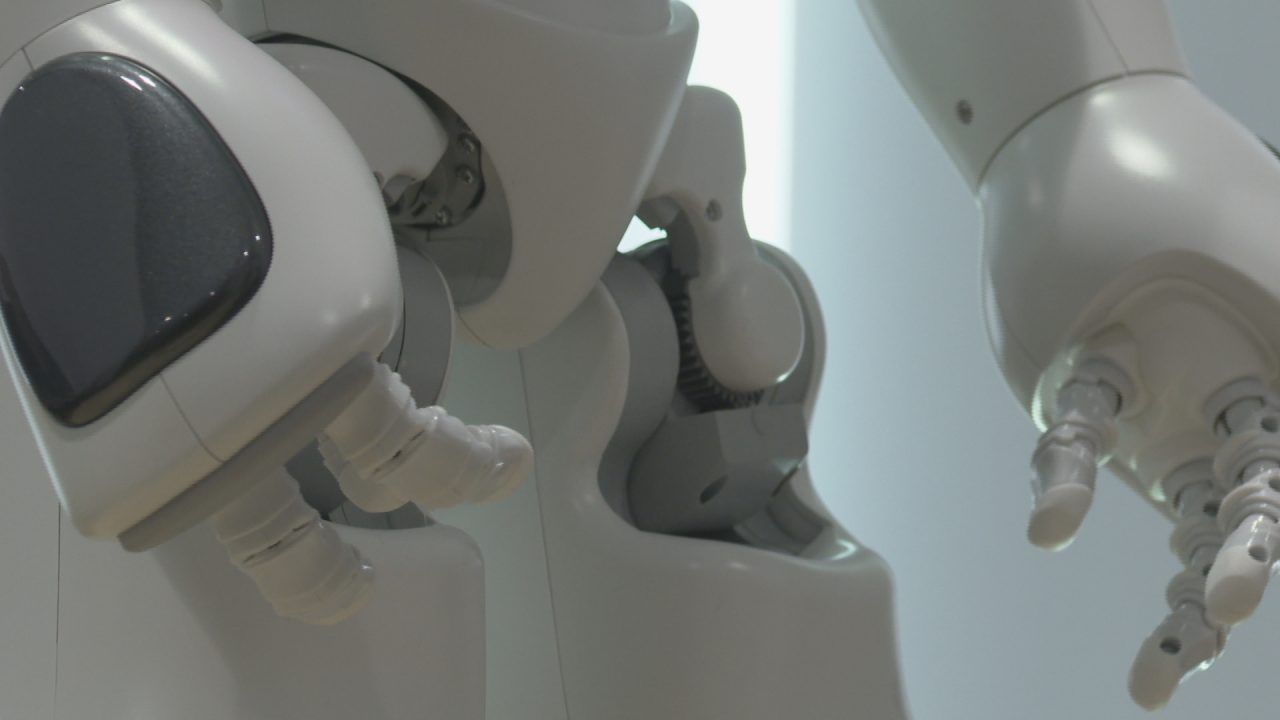Artificial intelligence – or AI – is becoming a bigger part of everyday life, and it’s a trend that isn’t likely to slow down anytime soon.
The UK AI market is currently worth more than £16bn, and according to the US International Trade Association that figure will balloon to over £800bn by 2035.
For many, AI may spark thoughts of programmes like ChatGPT – which can help write essays or summarise reports.
But the technology can be far more complex than just that. It’s already being used to aid self-driving vehicles or to run medical tools used for diagnosis and analysis.
Some critics though don’t feel it’s all quite as rosy as it’s made out to be – with worries over the potential impact on jobs, on creativity and in the reliability of the tech.
STV News spoke to two academics from the University of Edinburgh to look at both the positives of artificial intelligence and the drawbacks.
One area where it’s hoped AI can prove to be a game-changer is healthcare. We often hear about pressures on the NHS, and people like Professor Sotirios Tsaftaris, who specialises in AI and healthcare, feel using technology to take over some tasks could help to alleviate that.
“If we don’t solve this now we will not have the resources to deal with the needs of an ageing population within even, let’s say, ten years” said Professor Tsaftaris.
“Something has to change, either we have to recruit more doctors or more nurses, or we have to find ways to help the current workforce we have.
“Lots of different things can happen, for example with a brain scan.
“You can give it to AI and AI can offer a second reading so it’s able to help a radiologist in making a decision.
“You can think of it supplementing the need for the workforce – or for example triaging simple cases so the few radiologists that we have can focus on the difficult cases.”
The professor was able to show off a programme which allows the user to study the image of a brain scan. The tool gives the option to look at how a brain may develop in the coming years.
These tools could also prove helpful in taking care of fairly simple, but time consuming, administrative tasks, freeing up medical experts to focus on patients.
Even many of the biggest proponents of AI will urge caution and patience with the technology, as moving too quickly to implement it into every day life could have unintended and unforeseen consequences.
That’s a mindset Dr Pip Thornton, a chancellor’s fellow in the school of geoscience at the University, would agree with.
Dr Thornton has been at the forefront of designing an installation which was on display at this year’s Edinburgh book festival, warning of the potential dangers of AI.
Lex 9000 is a spoof automatic writing machine. Advertised as a useful digital assistant that can help story tellers and poets, users very quickly begin to realise it’s not all it’s cracked up to be.
The tech starts to add elements to your writing which you didn’t ask for, it claims it can detect certain styles in your copy and then blatantly plagiarises the likes of Robbie Burns without telling you.
Lex will also intermittently bombard the user with advertisements before eventually crashing.
It’s an example of generative AI – simply defined as artificial intelligence which generates things, like text, images or video.
Dr Thornton tells us the aim of the installation is to shed light on a number of concerns creatives have about AI, first the foremost around the elimination of some of those administrative jobs.
“In doing that, jobs are at risk, especially in writing adjacent jobs.” She said.
“Writers actually make very little from their actual writing, especially poets for example, and a lot of the time they’re making money on the side from translation, editing, typesetting, copyrighting.
“These jobs, the jobs that gen-AI hype people would say are the boring burdensome tasks, the things that can be automated, are actually going to really threaten the livelihoods of a lot of people in the creative industries.”
Another prime concern of people like Dr Thornton is around the threat to creativity itself – if machines like Lex 9000 can just produce a story or a poem for you then it may discourage some from letting their own imagination loose.
She said: “We might not have a monopoly on creativity but the words we produce come from emotion, come from an emotional place, and the fact that words can now just be bits of data and, of course, data always has a value these days, so words become commodities, and not only that they become manipulated by algorithms.
“Then they get tainted by these logics of the market, which means their original context doesn’t matter.
“There has been automatic poetry writing before in various ways, but I think the difference here is that the language here and the words here are so tied up with their economic value and how the money, the capital, can be extracted from them.”
It’s a certainty that artificial intelligence is going to become a bigger part of all of our lives in the coming years, whether we acknowledge certain types of tech are AI or not.
After all, AI as a concept isn’t new. The spam filter you’ve used to curate your email for decades being a prime example.
But opinions will be split on if in the grand scheme of things that really is an improvement or not.
Follow STV News on WhatsApp
Scan the QR code on your mobile device for all the latest news from around the country




























